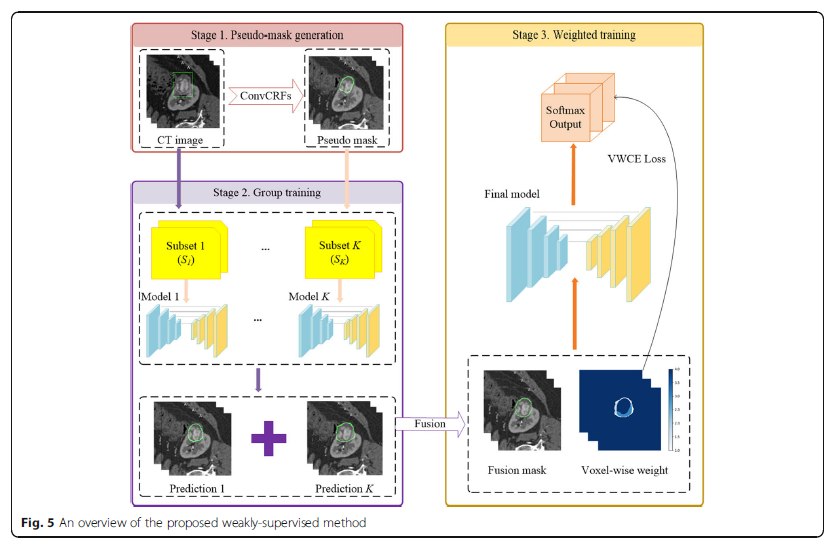Weakly-supervised convolutional neural networks of renal tumor segmentation in abdominal CTA images
Abstract—Background: Renal cancer is one of the 10 most common cancers in human beings. The laparoscopic partial nephrectomy (LPN) is an effective way to treat renal cancer. Localization and delineation of the renal tumor from pre-operative CT Angiography (CTA) is an important step for LPN surgery planning. Recently, with the development of the technique of deep learning, deep neural networks can be trained to provide accurate pixel-wise renal tumor segmentation in CTA images. However, constructing the training dataset with a large amount of pixel-wise annotations is a time-consuming task for the radiologists. Therefore, weakly-supervised approaches attract more interest in research. Methods: In this paper, we proposed a novel weakly-supervised convolutional neural network (CNN) for renal tumor segmentation. A three-stage framework was introduced to train the CNN with the weak annotations of renal tumors, i.e. the bounding boxes of renal tumors. The framework includes pseudo masks generation, group and
weighted training phases. Clinical abdominal CT angiographic images of 200 patients were applied to perform the evaluation. Results: Extensive experimental results show that the proposed method achieves a higher dice coefficient (DSC) of 0.826 than the other two existing weakly-supervised deep neural networks. Furthermore, the segmentation performance is close to the fully supervised deep CNN. Conclusions: The proposed strategy improves not only the efficiency of network training but also the precision of the segmentation.

